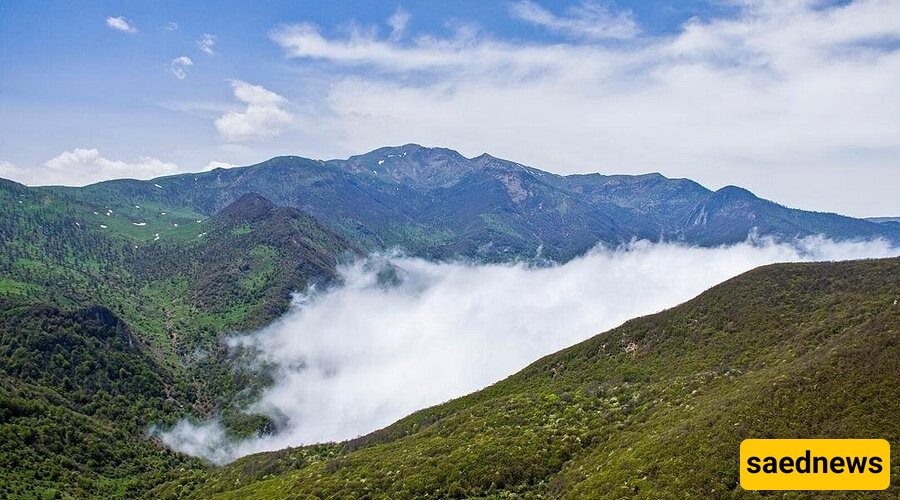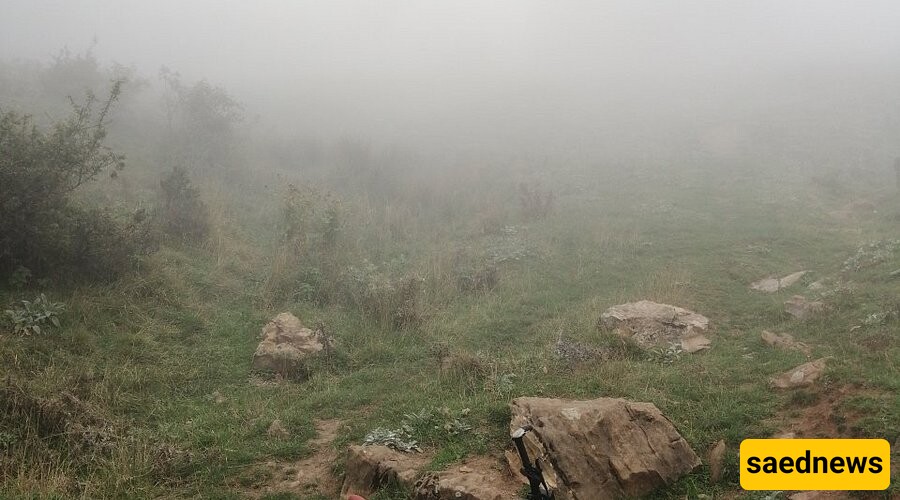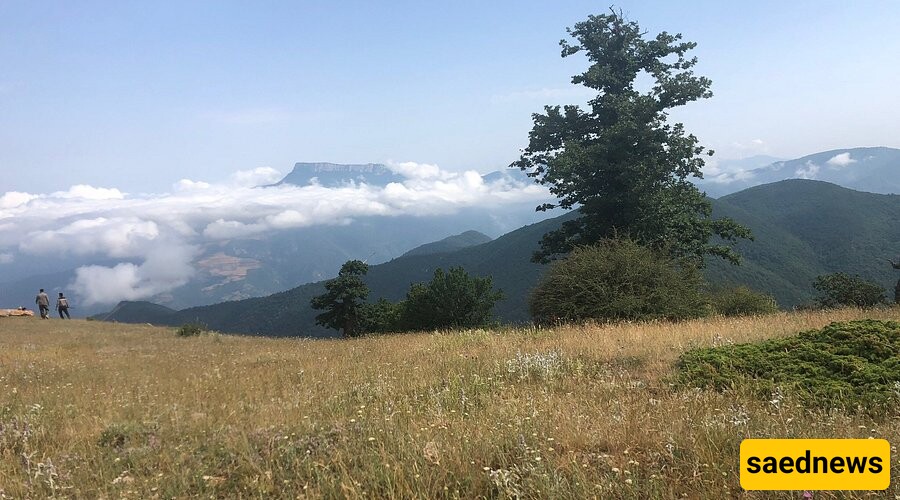SAEDNEWS: Jangal-e Abr, Iran's iconic "Cloud Forest," is celebrated for its striking views and rich biodiversity. But climate shifts and human impact endanger its unique ecosystem, highlighting the urgent need for conservation.

According to SAEDNEWS, set within the Alborz Mountains near Shahrud, Jangal-e Abr, or "Cloud Forest," is a rare natural treasure in Iran. Known for its fog-laden views and incredible biodiversity, this forest provides a one-of-a-kind experience for adventurers and nature lovers. However, like many of the world’s most beautiful places, Jangal-e Abr faces challenges that threaten its delicate environment and incredible charm.
A Cloud Forest Like No Other
The “Cloud Forest” nickname comes from the regular, low-lying clouds that envelop Jangal-e Abr. Moist winds from the Caspian Sea create these fog blankets that hover over the forest, producing an unusually humid environment. This high moisture level supports a variety of plant species unique to Jangal-e Abr, setting it apart from other forests in Iran.
Biodiversity Hotspot
Jangal-e Abr is home to a diverse range of plant life, from tall beech and oak trees to unique herbs and wildflowers. Its rich plant life supports various animal species, including deer, wild boars, foxes, and many bird types. As one of the few remaining cloud forests in Iran, Jangal-e Abr’s ecosystem is valuable both regionally and globally.
Environmental Value
The forest plays a crucial role in moderating the regional climate, regulating moisture, and preventing soil erosion. Its microclimate benefits surrounding farming areas by enhancing soil moisture, which is essential for nearby communities that rely on agriculture.
Cultural Significance and Growing Tourism
Jangal-e Abr holds deep cultural significance and is a favorite destination for those seeking Iran’s natural beauty. It’s a popular spot for hikers, campers, and photographers drawn to the area’s fog-shrouded landscapes. This mystical atmosphere has made it a prominent tourist attraction, drawing in nature lovers from all over.

Climate Change Effects
Like many natural areas, Jangal-e Abr is increasingly affected by climate change. Rising temperatures and altered rainfall disrupt the balance that keeps its ecosystem healthy. Extended droughts and unpredictable weather reduce moisture in the forest, threatening its flora and fauna.
Deforestation and Illegal Logging
Illegal logging and agricultural expansion have resulted in significant deforestation, putting immediate pressure on the forest. Logging has led to tree loss, reducing the forest’s biodiversity and its ability to retain moisture. Although authorities have regulations in place, illegal activities persist, impacting the area’s ecological stability.
Tourism Challenges
While tourism boosts local economies, unregulated visits harm the forest. Littering, habitat disruption, and off-road driving damage the soil and vegetation, affecting the natural environment and wildlife.

Conservation Initiatives
Iranian authorities and environmental organizations have launched various programs aimed at conserving Jangal-e Abr. These efforts include reforestation, stricter logging controls, and restoring damaged areas. Local communities are also becoming active advocates for protecting the forest, recognizing the importance of preserving it for future generations.
Eco-Friendly Tourism
New eco-tourism initiatives aim to lessen the negative impact of visitors. Guided tours, educational programs, and designated camping spots offer a more sustainable way for tourists to enjoy the forest while reducing harmful behaviors and encouraging responsible appreciation of nature.
Awareness Campaigns
Environmental groups and local activists work to educate people about the ecological importance of Jangal-e Abr. These campaigns inform residents and visitors alike about the benefits of conservation. Media coverage has also shed light on the need to protect the forest from overuse and environmental damage.
Implementing Sustainable Practices
The preservation of Jangal-e Abr requires balancing conservation with tourism. Sustainable practices like limiting visitor numbers, enforcing strict regulations, and promoting eco-tourism are essential. With increased awareness and support from communities, Jangal-e Abr could maintain its beauty while benefiting both nature and people.
Collaboration for Long-Term Conservation
Long-term protection of Jangal-e Abr depends on cooperation between government agencies, environmental groups, and local residents. Collective efforts can help address illegal activities, ensure sustainable tourism, and implement policies to protect this natural treasure.
More than a popular attraction, Jangal-e Abr is a symbol of Iran’s environmental and cultural heritage. As one of Iran’s few remaining cloud forests, it serves as a reminder of nature’s beauty and biodiversity. Protecting Jangal-e Abr is a shared responsibility, and with ongoing dedication to sustainable practices and conservation efforts, this forest can continue to inspire and nurture future generations.

